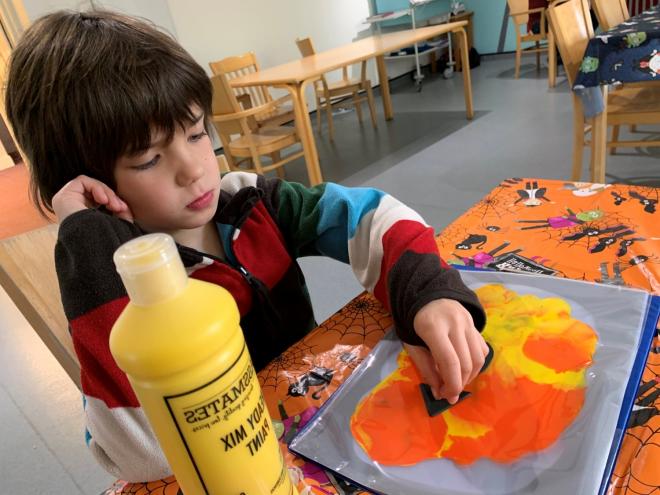Medical negligence compensation claims: A step-by-step guide
This advice applies across the UK.
Our friends at national law firm Bolt Burdon Kemp have put together a step-by-step guide to help parent carers who may be considering making a medical negligence compensation claim.
In this article
What is a medical negligence compensation claim?
Medical negligence, also known as clinical negligence, occurs when a healthcare professional provides substandard care, resulting in harm or injury to a patient. It can involve doctors, nurses, midwives, surgeons, or any other healthcare provider.
A medical negligence compensation claim is the process of obtaining financial compensation for the injuries and losses caused by the medical negligence.
Contrary to common misconceptions, a medical negligence compensation claim is not about punishing individual practitioners. Instead, it aims to:
- compensate the injured person financially for the pain, suffering and lifelong losses and expenses due to the injuries.
- hold the organisation accountable. Often medical errors and substandard care come down to failures within healthcare systems, such as lack of equipment, staff, training and supervision or inadequate procedures. Medical negligence claims encourage healthcare providers to improve patient safety and prevent similar incidents from happening again.
What are the stages of the compensation process?
In its simplest form, the process can be broken down into three key stages:
1. Initial Contact
Seek Legal Advice: The first step is to contact a medical negligence solicitor specialising in clinical or medical negligence. They will listen to your story, assess your case, and talk about how the process works. Specialist solicitors won’t charge you for this initial advice and you’re under no obligation to instruct them. You may want to contact more than one firm of solicitors and that’s perfectly ok.
Funding Discussion: If you want to go ahead, your solicitor will discuss how best to fund the claim. This may be by legal aid or under a “no win, no fee” agreement. Your solicitor will help you decide on the best arrangement for your situation and deal with the formalities.
Initial Help and Support: Bolt Burdon Kemp is committed to providing comprehensive support to our clients from the very beginning through our Early Support Services. We can help with benefits and applications for emergency funds, we can draft letters to employers, negotiate with creditors and service suppliers and signpost you to family, housing, and immigration specialists if needed.
2. Gathering Evidence
Medical Records: Your solicitor will obtain the medical records. These documents are crucial for assessing liability (whether there was substandard care and, if so, whether it caused avoidable harm).
Witness Statements: Your solicitor will take statements in support of the claim. These may be about what happened during the treatment but crucially will address quantum (the financial aspects of the claim), describing the injuries and how they have affected the injured person’s daily life, independence, and overall well-being.
Independent Medical Opinion: Your solicitors will consult an independent medical expert. They will evaluate the medical care given and give their opinion on whether there was substandard treatment that caused avoidable harm. Sometimes more than one medical expert is needed. Medical negligence claims are complex, and this stage can take time. If there is no evidence that the care was substandard or that it caused avoidable harm, the case will be closed and all legal costs and expenses will be written off, meaning you will not have to pay anything.
Valuing the Claim: Your solicitors will calculate the amount of compensation to claim, based on your unique circumstances. They will consider the severity of harm and the impact on day-to-day life, as well as the lifelong financial losses and expenses that flow.
3. Presenting the Case
Letter of Claim: Your solicitor will send the defendant (usually the healthcare provider) a formal letter of claim. This outlines the allegations and the harm suffered.
Defendant’s Response: The defendant will respond, either accepting or denying responsibility.
Negotiations: If liability is accepted, and once the value of the claim has been assessed, negotiations begin to settle the claim. The court must approve any settlement for a child to protect the child’s interests. If liability is denied, the case may continue to a court hearing.
Top tips for claimants
- Instruct a specialist solicitor as soon as possible. Time limits apply to making a claim.
- Keep a diary to note the impact of the injuries on daily life and store expense receipts.
- Keep letters and documents from your solicitor safely and do not share with anyone.
- Be patient. Legal proceedings take time, but interim payments of compensation will fund financial and practical support.
- Seek emotional support from friends, family or support groups and take advantage of support offered by your solicitor.
Bolt Burdon Kemp (BBK) generously provide funding for our By Your Side hospitals programme. BBK staff also kindly volunteer for Contact and take part in fundraising events.
Related information

Clinical negligence
If you believe your child has been injured due to poor medical treatment or advice, you should speak to a specialist solicitor…
Read more
Legal advice
In most cases it isn't necessary to seek legal advice to get the support you need. But sometimes it may be necessary…
Read more
Putting things right
If you're unhappy with the service you've received from a healthcare service, you can provide feedback, make a complaint, or find some…
Read more